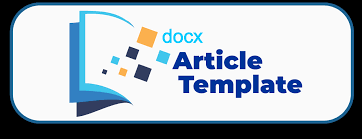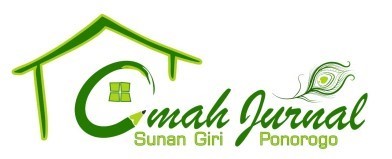Empowerment of Local Government Officials in Managing Waste to Support Sustainable Development (Case Study in Lebak Regency)
DOI:
https://doi.org/10.37680/amalee.v5i2.4620Keywords:
Circular Economy, Community Service, Economic Added Value, Lebak Regency, Waste ManagementAbstract
The circular economy emerged as a response to the aspiration to realize sustainable development in anticipation of production and consumption pressures on natural resources and the environment. In this economic system concept, waste management is carried out optimally, where the result of recycling waste will be a value-added product while reducing waste residue. The objectives of the community service program are to provide solutions to waste management problems in Lebak Regency, provide alternative business development using appropriate technology so that there is an increase in the economy of the community in Lebak Regency, and at the same time, build disciplined behavior in maintaining the environment. This service method uses Participatory Action Research (PAR), which involves community members as co-researchers in identifying educational needs, developing strategies, and implementing solutions. Furthermore, the method used was through the delivery of socialization to participants in a hybrid manner. The socialization material includes (i) the importance of waste processing, (ii) how to sort waste, and (iii) economic added value from waste processing. The results of community service are in the form of solving problems the community faces by utilizing the expertise of relevant academicians related to waste management in Lebak Regency, West Java. Furthermore, the implication of this community service is to increase literacy and awareness among government officials about adequate waste management so that they can manage waste in their areas to reduce the negative impact of landfills.
References
Ahmad, R. Bin, Jilani, G., Arshad, M., Zahir, Z. A., & Khalid, A. (2007). Bio-Conversion of Organic Wastes for Their Recycling in Agriculture: An Overview of Perspectives and Prospects. Annals of Microbiology, 57(4), 471–479. https://doi.org/10.1007/bf03175343
Alam, P., & Ahmade, K. (2013). Impact of solid waste on health and the environment. International Journal of Sustainable Development and Green Economics (IJSDGE), 2(1), 165–168. http://irnet.sg/irnet_journal/IJSDGE/IJSDGE_doc/IJSDGE_V2I1,2_papers/31.pdf
Angelis-Dimakis, A., Arampatzis, G., Alexopoulos, A., Pantazopoulos, A., Vyrides, I., Chourdakis, N., & Angelis, V. (2022). Waste Management and the Circular Economy in Cyprus—The Case of the SWAN Project. Environments - MDPI, 9(2), 1–17. https://doi.org/10.3390/environments9020016
Arafah, W., Nugroho, L., Takaya, R., & Soekapdjo, S. (2018). Marketing strategy for renewable energy development in Indonesia context today. International Journal of Energy Economics and Policy, 8(5), 181–186.
Arrigo, L. G. (1994). The Environmental Nightmare of the Economic Miracle: Land Abuse and Land Struggles in Taiwan. Bulletin of Concerned Asian Scholars, 26(1–2), 21–44. https://doi.org/10.1080/14672715.1994.10416150
Ayilara, M. S., Olanrewaju, O. S., Babalola, O. O., & Odeyemi, O. (2020). Waste management through composting: Challenges and potentials. Sustainability, 12(11), 1–23. https://doi.org/10.3390/su12114456
Brindha, R., Tan, J., Chellappan, V., & Ramakrishna, S. (2023). Recent Advances in Extended Producer Responsibility Initiatives for Plastic Waste Management in Germany and UK. Materials Circular Economy, 5(1). https://doi.org/10.1007/s42824-023-00076-8
Brunner, P. H., & Rechberger, H. (2015). Energy waste - a key element for sustainable waste management. Waste Management, 37, 3–12. https://doi.org/10.1016/j.wasman.2014.02.003
Bułkowska, K., Zielińska, M., & Bułkowski, M. (2023). Implementation of Blockchain Technology in Waste Management. Energies, 16(23), 7742. https://doi.org/10.3390/en16237742
Dontala, S. P., Reddy, T. B., & Vadde, R. (2015). Environmental Aspects and Impacts its Mitigation Measures of Corporate Coal Mining. Procedia Earth and Planetary Science, 11, 2–7. https://doi.org/10.1016/j.proeps.2015.06.002
Ferreira, S., Cabral, M., Cruz, N. F. da, Simões, P., & Marques, R. C. (2016). The Costs and Benefits of Packaging Waste Management Systems in Europe: The Perspective of Local Authorities. Journal of Environmental Planning and Management, 60(5), 773–791. https://doi.org/10.1080/09640568.2016.1181609
Ham, G.-Y., Matsuto, T., Tojo, Y., & Matsuo, T. (2019). Material and Moisture Balance in a Full-Scale Bio-Drying MBT System for Solid Recovered Fuel Production. Journal of Material Cycles and Waste Management, 22(1), 167–175. https://doi.org/10.1007/s10163-019-00925-2
Heacock, M., Kelly, C. B., Asante, K. A., Birnbaum, L. S., Bergman, Å., Bruné, M. N., Buka, I., Carpenter, D. O., Chen, A., Huo, X., Kamel, M., Landrigan, P. J., Magalini, F., Dı́az-Barriga, F., Neira, M., Omar, M. Z., Pascale, A., Ruchirawat, M., Sly, L., … Suk, W. A. (2016). E-Waste and Harm to Vulnerable Populations: A Growing Global Problem. Environmental Health Perspectives, 124(5), 550–555. https://doi.org/10.1289/ehp.1509699
Hussain, A., Draz, U., Ali, T., Tariq, S., Irfan, M., Glowacz, A., David, J. A. A., Yasin, S., & Rahman, S. (2020). Waste management and prediction of air pollutants using IoT and machine learning approach. Energies, 13(15), 1–22. https://doi.org/10.3390/en13153930
Kabeyi, M. J. B., & Olanrewaju, O. A. (2023). Review and Design Overview of Plastic Waste-to-Pyrolysis Oil Conversion With Implications on the Energy Transition. Journal of Energy, 1–25. https://doi.org/10.1155/2023/1821129
Karthikeyan, L. M., Suresh, V. M., Krishnan, V. V. G., Tudor, T. L., & Varshini, V. (2018). The Management of Hazardous Solid Waste in India: An Overview. Environments, 5(9), 103. https://doi.org/10.3390/environments5090103
Kiddee, P., Naidu, R., & Wong, M. H. (2013). Electronic waste management approaches An overview. Waste Management, 33(5), 1237–1250. https://doi.org/10.1016/j.wasman.2013.01.006
Kurniawan, T. A., Meidiana, C., Dzarfan Othman, M. H., Goh, H. H., & Chew, K. W. (2023). Strengthening waste recycling industry in Malang (Indonesia): Lessons from waste management in the era of Industry 4.0. Journal of Cleaner Production, 382(May 2022), 135296. https://doi.org/10.1016/j.jclepro.2022.135296
Lestari, P., & Trihadiningrum, Y. (2019). The impact of improper solid waste management on plastic pollution on the Indonesian coast and marine environment. Marine Pollution Bulletin, 149(April), 110505. https://doi.org/10.1016/j.marpolbul.2019.110505
Meidiana, C., & Gamse, T. (2011). The new Waste Law: Challenging opportunity for future landfill operation in Indonesia. Waste Management and Research, 29(1), 20–29. https://doi.org/10.1177/0734242X10384013
Mekonnen, G. B., & Tokai, A. (2020). A Historical Perspective of Municipal Solid Waste Management and Recycling System in Japan: Learning for Developing Countries. Journal of Sustainable Development, 13(3), 85. https://doi.org/10.5539/jsd.v13n3p85
Mohamed, G., El-Kfarawy, M., & El-Gamal, B. A. (2020). Soil Properties, Nutrints Availability and Wheat Productivity as Affected by Compost and Nitrogen Sources. Journal of Soil Sciences and Agricultural Engineering, 11(1), 35–42. https://doi.org/10.21608/jssae.2020.79169
Munawar, E., Yunardi, Y., Lederer, J., & Fellner, J. (2018). The development of landfill operation and management in Indonesia. Journal of Material Cycles and Waste Management, 20(2), 1128–1142. https://doi.org/10.1007/s10163-017-0676-3
Mutia, A. (2022). 10 Negara Penyumbang Sampah Plastik Terbanyak ke Laut, RI Peringkat Berapa? Databoks.Katadata. Co.Id. https://databoks.katadata.co.id/datapublish/2022/11/12/10-negara-penyumbang-sampah-plastik-terbanyak-ke-laut-ri-peringkat-berapa
Nugroho, L., Utami, W., Akbar, T., & Arafah, W. (2017). The Challenges of Microfinance Institutions in Empowering Micro and Small Entrepreneurs to Implement Green Activity. International Journal of Energy Economics and Policy, 7(3), 66–73. http:www.econjournals.com
Ogushi, Y., & Kandlikar, M. (2007). Assessing Extended Producer Responsibility Laws in Japan. Environmental Science & Technology, 41(13), 4502–4508. https://doi.org/10.1021/es072561x
Permana, D., Febrianto, E., & Saepudin, E. A. (2024). Public innovation of waste management completion strategy for community welfare in Lebak district. International Journal of Politics and Sociology Research, 12(1), 111–121.
Rodić, L., & Wilson, D. C. (2017). Resolving governance issues to achieve priority sustainable development goals related to solid waste management in developing countries. Sustainability (Switzerland), 9(3). https://doi.org/10.3390/su9030404
Setiawan, A., Sari, E. I., & Nuraini, R. (2021). Membenahi Tata Kelola Sampah Nasional. Indonesia.Go.Id. https://indonesia.go.id/kategori/indonesia-dalam-angka/2533/membenahi-tata-kelola-sampah-nasional
Shvetsova, O. A., & Lee, J. H. (2020). Minimizing the Environmental Impact of Industrial Production: Evidence From South Korean Waste Treatment Investment Projects. Applied Sciences, 10(10), 3489. https://doi.org/10.3390/app10103489
Siddiqua, A., Hahladakis, J. N., & Al-Attiya, W. A. K. A. (2022). An overview of the environmental pollution and health effects of waste landfilling and open dumping. Environmental Science and Pollution Research, 29(39), 58514–58536. https://doi.org/10.1007/s11356-022-21578-z
Singh, S., & Prakash, V. (2007). Toxic Environmental Releases From Medical Waste Incineration: A Review. Environmental Monitoring and Assessment, 132(1–3), 67–81. https://doi.org/10.1007/s10661-006-9503-3
Sofiyah, S. N., & Fikri, A. A. (2021). Utilization of Organic Waste Using Techniques Bioreactor Submarine in Pati Central Java. 3(1), 24–29. https://doi.org/10.30598/rumphiusv3i1p024-029
Utami, W., Nugroho, L., & Jayasinghe, K. (2021). Carbon Credit Risk Mitigation of Deforestation: A Study on the Performance of P2H Products and Services in Indonesia. International Journal of Financial Research, 12(2), 125. https://doi.org/10.5430/ijfr.v12n2p125
Van Rooij, B. (2010). Greening Industry Without Enforcement? An Assessment of the World Bank’s Pollution Regulation Model for Developing Countries. Law and Policy, 32(1), 127–152. https://doi.org/10.1111/j.1467-9930.2009.00311.x
Vandecasteele, C., Wauters, G., Arickx, S., Jaspers, M., & Van Gerven, T. (2007). Integrated municipal solid waste treatment using a grate furnace incinerator: The Indaver case. Waste Management, 27(10), 1366–1375. https://doi.org/10.1016/j.wasman.2006.08.005
Vishnu, S., Ramson, S. R. J., Smith, S., Anagnostopoulos, T., Abu‐Mahfouz, A. M., Fan, X., Srinivasan, S., & Kirubaraj, A. A. (2021). IoT-Enabled Solid Waste Management in Smart Cities. Smart Cities, 4(3), 1004–1017. https://doi.org/10.3390/smartcities4030053
Yoon, C.-W., Kim, M., Park, Y.-S., Jeon, T.-W., & Lee, M.-Y. (2022). A Review of Medical Waste Management Systems in the Republic of Korea for Hospital and Medical Waste Generated From the COVID-19 Pandemic. Sustainability, 14(6), 3678. https://doi.org/10.3390/su14063678
Downloads
Published
How to Cite
Issue
Section
License
Authors who submit manuscript retain its copyright and grant Amalee right of first publication licensed under a Creative Commons Attribution-ShareAlike 4.0 International License (CC BY-SA 4.0) that allows others to access (search, read, download, and cite), share (copy and redistribute the material in any medium or format) and adapt (remix, transform, and build upon any material) the work for any lawful purpose, even commercially with an acknowledgement of the work's authorship and initial publication in Amalee: Indonesian Journal of Community Research and Engagement.














